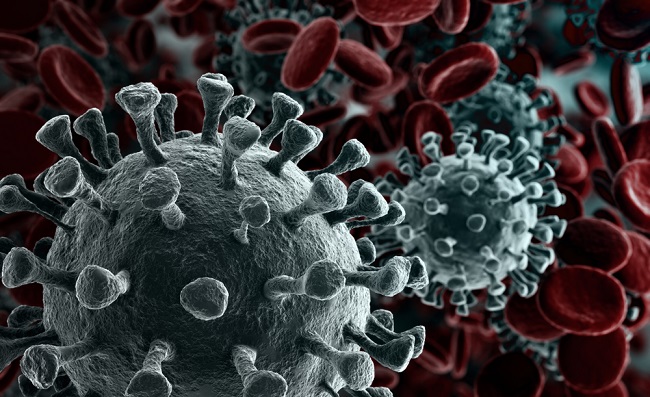New Coronavirus Toolkit allows for ‘open access’ of antibodies and genetic tools to further global research into COVID-19 variants
Published: 25 February 2021
An international consortium, led by scientists in Scotland, have devised a Coronavirus Toolkit which gives researchers from across the world open access to materials, including antibodies and genetic tools, which can be easily and immediately ordered via an online portal – to further research into COVID-19.
An international consortium, led by scientists in Scotland, have devised a Coronavirus Toolkit which gives researchers from across the world open access to materials, including antibodies and genetic tools, which can be easily and immediately ordered via an online portal – to further research into COVID-19.

The toolkit was designed and validated by scientists at the MRC-University of Glasgow Centre for Virus Research (CVR) in partnership with the MRC Protein Phosphorylation and Ubiquitylation Unit (MRC PPU) at the University of Dundee.
The toolkit is important for many avenues of COVID research, including characterising new variants of the SARS-CoV-2 virus. However it will also help researchers to improve our understanding of COVID-19 disease, monitor vaccine efficacy and evaluate additional treatment options for COVID-19, as well as helping to aid preparedness for future coronavirus pandemics.
The resources and technologies available in the toolkit -- including SARS-CoV-2 infectious clones, patient isolates, cell lines and antibodies – have been made openly available to research groups worldwide to accelerate research through a user-friendly webpage and established biorepositories.
The toolkit has already been used in a number of high-profile studies into the virus published in Science and Cell.
The details – published today in PLOS Biology – set out how the toolkit was developed to meet an urgent need for validated laboratory resources to facilitate research in labs unaccustomed to working with coronaviruses.
When new viruses emerge, very little is known about them, and currently there are very few labs within the UK with the capabilities to generate mutant viruses and harness these viral mutations for research. The toolkit and its reverse genetics system make materials accessible to other biology labs who are keen to make an impact to further research into SARS-CoV-2, the virus that causes COVID-19.
Dr Sam Wilson, Senior Research Fellow at the CVR, said: “Unfortunately COVID-19 is not over, and much remains unknown about this disease. Having the right tools is essential for any scientist studying SARS-CoV-2 and our toolkit will allow researchers to conduct experiments not previously possible.
“The development of vaccines for COVID-19 is encouraging, but there is still a lot to learn about this virus. The simple genetic tools we’ve made available to the community will help scientists understand the role of individual changes in new variants of SARS-CoV-2 (which often contain multiple individual changes) – and our online toolkit and portal will allow scientists to access antibodies and other tools for research, at cost, at the click of a few buttons.”
Suzannah Rihn, Sir Henry Wellcome Postdoctoral Research Fellow at the CVR, said: “The recent vaccination successes offer us a way out of this pandemic. However, vigilance is required, as more viral variants may continue to emerge, and these may be resistant (or partially resistant) to the vaccines. It is likely that future vaccinations will be required in years to come. The tools we’ve made openly available to the scientific community will allow scientists to engineer these variants and study them in the lab”.
Professor Dario Alessi, Director of the MRC PPU at Dundee, said: “We are delighted to have been able to use our expertise and facilities to support this valuable project. I thank the dedicated work of dozens of our Unit’s researchers who have contributed to this project. Generating similar toolkits of reagents to other viruses and pathogens should be considered.”
The paper, ‘A Plasmid DNA-Launched SARS-CoV-2 1 Reverse Genetics System and 2 Coronavirus Toolkit for COVID-19 Research,’ is published in PLOS Biology. The work was funded primarily by the MRC.
First published: 25 February 2021
<< News




